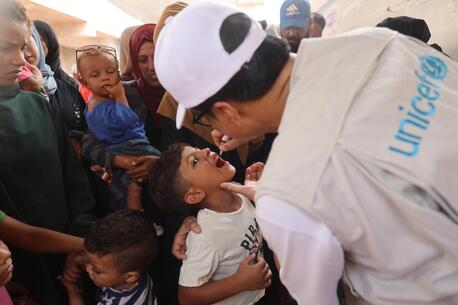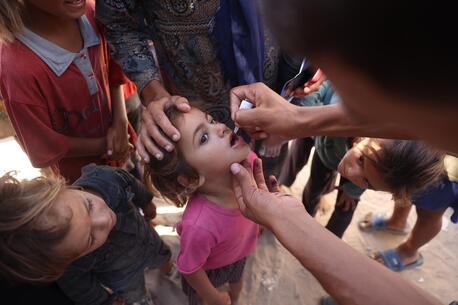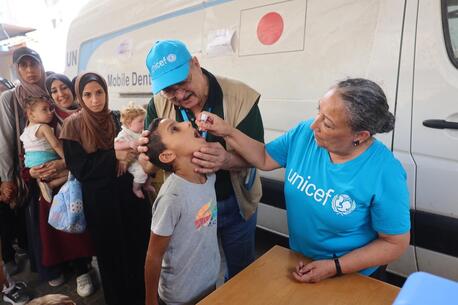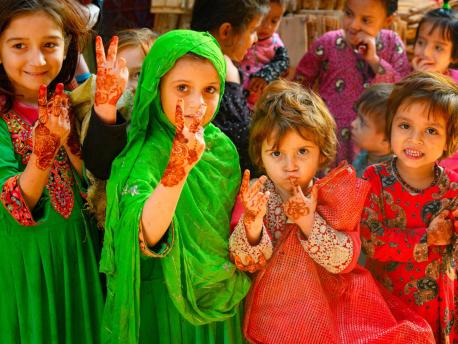
Women Vaccinators Protect Pakistan's Children From Polio
On January 11, Pakistan launched its first vaccination campaign of 2021, with an ambitious goal: vaccinate 40 million children under the age of 5 against polio in just five days.
More than 285,000 locally-trained frontline workers — the majority of them women — pitched in to conduct the door-to-door campaign, meeting caregivers at their doorstep while adhering to COVID-19 safety measures and protocols. Wearing masks and carrying hand sanitizer, they fanned out into the community, spreading the word about the lifesaving power of vaccines.

Pakistan's polio workforce is 68 percent female. Women vaccinators play a key role in encouraging parents to immunize their children, building community trust and reaching children who might otherwise be missed. Mothers who might be reluctant to open their doors to male vaccinators are more comfortable discussing immunization with female workers, many of whom are mothers themselves. Vaccine hesitancy and misinformation remain an issue, but vaccinators are trained to dispel rumors and answer parents' questions with facts, explaining the safety of vaccines and the importance of protecting their children against preventable diseases.

UNICEF and partners in the Global Polio Eradication Initiative (GPEI) — including Rotary International and the Bill & Melinda Gates Foundation — are working together to end polio in Pakistan and worldwide. The highly infectious, crippling and sometimes deadly disease, which most frequently strikes children under the age of 5, was once the leading cause of paralysis among children.

When UNICEF and Rotary International began their partnership in 1988, polio was endemic in 125 countries. After polio was officially eliminated in Nigeria in 2020, leaving all of Africa wild poliovirus-free, Pakistan and Afghanistan became the only two countries where the wild poliovirus continues to spread.

As part of GPEI, UNICEF leads in vaccine supply and working with communities, supporting countries in building trust in vaccines, and ensuring polio vaccines are safe and effective.

Above, Shumaila, a UNICEF-trained polio vaccinator, gives the vaccine to a 5-year-old boy outside his house in Lahore.

After she has vaccinated a child, Shumaila uses a pen to mark their finger to show they are now safe from polio. Above, she marks the finger of a 18-month-old boy, with the help of his older sister.
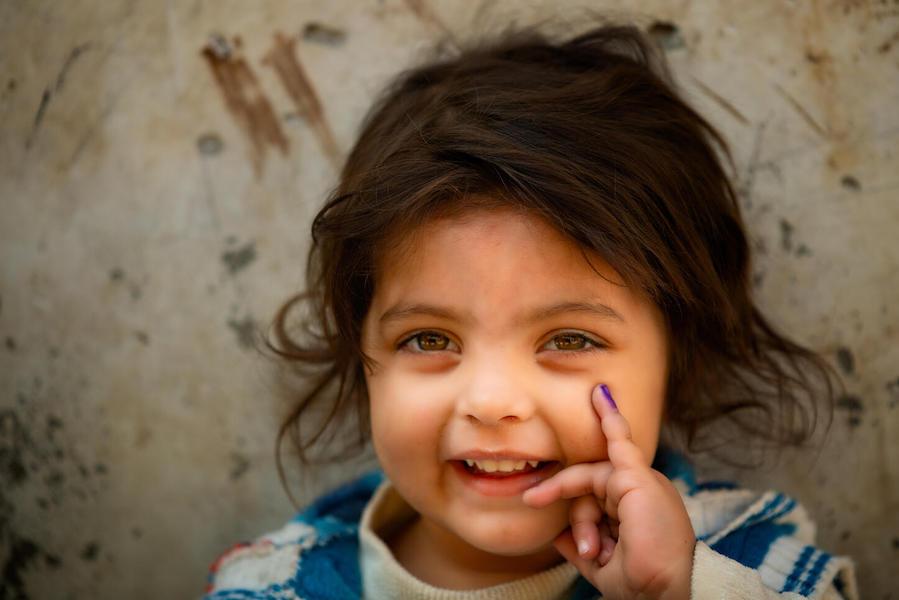
To stop the endemic transmission of polio and eradicate the disease once and for all, every child must be vaccinated. In 2019, the World Health Organization issued a statement expressing grave concern about ongoing polio outbreaks in Pakistan. And then in 2020, the COVID-19 pandemic threw a wrench in vaccination efforts worldwide — complicating access issues, straining resources and prompting UNICEF and partners to redouble efforts to get routine immunizations back on track. "The message is clear," UNICEF Executive Director Henrietta Fore said. "We must not allow lifesaving health interventions to fall victim to our efforts to address COVID-19."
Your generosity will help UNICEF protect the world's children from preventable diseases. Please donate.
Top photo: In Lahore, Pakistan, girls between the ages of 3 and 5 welcome a team of polio vaccinators. All photos © Syed Mehdi Bukhari for UNICEF
HOW TO HELP
There are many ways to make a difference
War, famine, poverty, natural disasters — threats to the world's children keep coming. But UNICEF won't stop working to keep children healthy and safe.
UNICEF works in over 190 countries and territories — more places than any other children's organization. UNICEF has the world's largest humanitarian warehouse and, when disaster strikes, can get supplies almost anywhere within 72 hours. Constantly innovating, always advocating for a better world for children, UNICEF works to ensure that every child can grow up healthy, educated, protected and respected.
Would you like to help give all children the opportunity to reach their full potential? There are many ways to get involved.



